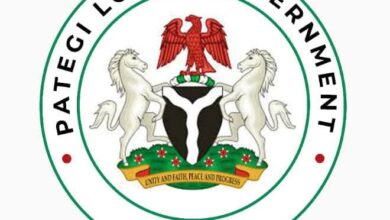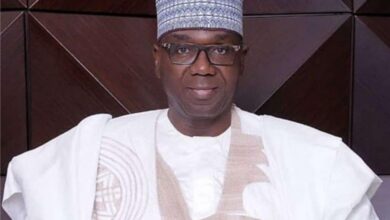Here is why Afrobeats does not deserve a Grammy category yet

On January 26, 2020, the 62nd Grammy Awards held at Staples Centre, Los Angeles, California. For Nigerians and Africans, it was bitter-sweet. One of us won an award that we wanted for another.
Angelique Kidjo took home the gong that our entire continent stayed awake to see Nigerian superstar, Burna Boy take home. Since the event happened in distant sunny California, we have seen some hot takes, empathy and downright cases of cynicism across social media – mostly on Twitter.
Some have wrongly stated that Burna Boy didn’t win because his album contains excessive samples – try not to laugh at that take. Others have vehemently maintained that Burna Boy deserved the award over the Beninise legend, Kidjo. A few have been gracious in the loss while nudging Burna Boy to keep going.
But that was Twitter – mostly its NG offshoot. What we didn’t see coming in the early evening of January 29, 2020 was something spectacularly befuddling off Instagram from a Briton, nonetheless. Interestingly, it came from legendary British supermodel, Naomi Campbell.
She took to her Instagram page inexplicably named ‘Naomi’ to drop her hot take on the matter of Angelique Kidjo vs. Burna Boy vs. The Grammys – as if we hadn’t had enough.
Her post reads, “”First, I want to say deepest congratulations to @angeliquekidjo for her award on Sunday, and thank you to you for spreading light and opening minds through your music…
For the ones who have a hunch of how the ting go, you must be questioning why Ms. Campbell even weighed in on the matter to begin with. Oh snap, she’s black. But then, why is she so interested afrobeats to the extent that she’s supporting it with a false clamor?
First, she was wrong to even remotely try and undermine Angelique Kidjo’s win – however subtly she did it. It’s not that Burna Boy wouldn’t have deserved the award, but it’s a case of one quality album winning over another quality, deserving album.
Angelique Kidjo is also African. So, her win is still ours – however little. Yes, her album was made in Spanish, but the Yoruba influences in that brand of Spanish which she sung in means the album is still very African. So, we don’t need such division. Africa has been torn apart by sufficient tribal allegiance and xenophobia. We don’t need any more.
Secondly and hilariously is her claim that afrobeats should have its own Grammy category because – wait for it – Reggae and Latin pop have categories. Guys, I spilled my drink when I read this take. Afrobeats is not in the same ball park as Latin pop, Reggae/Dancehall or even K-pop on the global scale.
Why do I say that?
Like it or not and until we stop obsessing over success in the US, the standard for global success in the world is usually success in America – which equates sustained Billboard Chart success and heavy revenue generation after acceptance by the American mainstream.
At this point, none of Nigeria’s afrobeats superstars has cracked the Billboard Hot 100 Charts or even the Heatseekers or Bubbling Under charts. Davido rose high with his smash hit, ‘Fall.’ However, that song was only on the Digital Airplay charts.
In other cases, Latin pop is on its third moon of heavy success in contemporary American music. The first wave saw success for the likes of Selena – the queen of Tejano, Carlos Santana, Gloria Estefan and others become superstars.
The second moon came in the 2000s and it saw the success of acts like Shakira, Daddy Yankee, Wisin n Yandel and so forth. Shakira became a global sensation and Americans of Spanish descent began making music in the tongue of their ancestors.
The third moon for Latin pop saw Luis Fonsi’s single, ‘Despacito’ become the longest charting No. 1 on the Billboard Hot 100 – a record since broken by Lil Nas X and his monster hit, ‘Old Town Road.’ Latin pop is a staple of proven profitability across Latin America, Europe and India – its biggest market by 2018.
Although it’s been claimed that they’re aided by TrueView, main Latin pop stars have one billion views on their YouTube videos like they are eating tortillas. In 2019, J Balvin was the most streamed artist on Deezer – globally.
At the 2018 World Cup in Russia, Nicki Jam, a Latin pop star made the main theme song. The same happened at the 2006 World Cup in Germany – Shakira. That’s influence and guarantee of investment. They’re also generating more money for record companies and concert companies. More importantly, they’re a feature of mainstream American music.
On the Reggae/Dance hall side, from the days of Bob Marley, the genre had more success than Fela, Mariam Makeba, Hugh Masekela, King Sunny Ade and so forth. In the 90s, The Fugees ran on some of that wave and succeeded.
In the 2000s, Sean Paul was a mainstream American superstar with Billboard No. 1 hits. Beyonce jumped on his wave for a sultry performance of ‘Baby Boy’ and produced a smash hit. Beyonce jumped on Latin pop ‘Mi Gente,’ a latin pop song in 2017. The song has since amassed 2.6 billion views on YouTube.
In comparison, Beyonce made an entire album about afrobeats, it has not even come close to reaching the levels Beyonce hit with dancehall and latin pop. In recent times, Drake, Rihanna, French Montana and others have crafted mega-hits of dancehall.
When Drake wanted to make afrobeats on his album, Views, he tinged it with dancehall to be better accepted. Like Latin pop, Reggae/Dancehall is a bigger feature of an American mainstream that afrobeats has never even smelled as an independent entity. When you think about it, you realize American labels have a better grasp of latin pop and dancehall than they do afrobeats.
K-Pop doesn’t have a Grammy category and ‘Gangnam Style’ by Psy which is one of the biggest songs of the past decade – it is a K-pop song. Currently, K-pop boy bands are part of the new wave of boy band culture, stealing hearts of teenage girls at will.
BTS is one of such bands. K-Pop has an estimated paid listenership of close to one billion with a record of influence on the American mainstream. Afrobeats cannot even crack Bill board’s Bubbling Under Charts on its own.
Does afrobeats deserve an independent category at the Grammy awards?
The Recording Academy has already tried. We have a World Music Album category – that’s sufficient recognition. The Grammy Awards is an American award. They will only reward thriving genres in the soundscape. It’s not about racism or cynicism, afrobeats doesn’t deserve it yet – it’s that simple.
One factor why reggae/dancehall and latin pop continue to thrive in the US is the same thing afrobeats has bigger acceptance in the UK. The reason is a primary and larger loyal immigrant demography that aids cultural interests. For example, more people are willing to learn patois and Spanish than they will ever be willing to learn pidgin – that’s impact.
They will not reward sentiment – afrobeats is not to them what it is to us and sentiment isn’t fact. It’s not successful in their soundscape yet, they cannot reward a genre that’s almost anonymous to their mainstream. They might in the future, but that time is not now. For that to happen, afrobeats will need 5-10-15 years of quality revenue generation.





